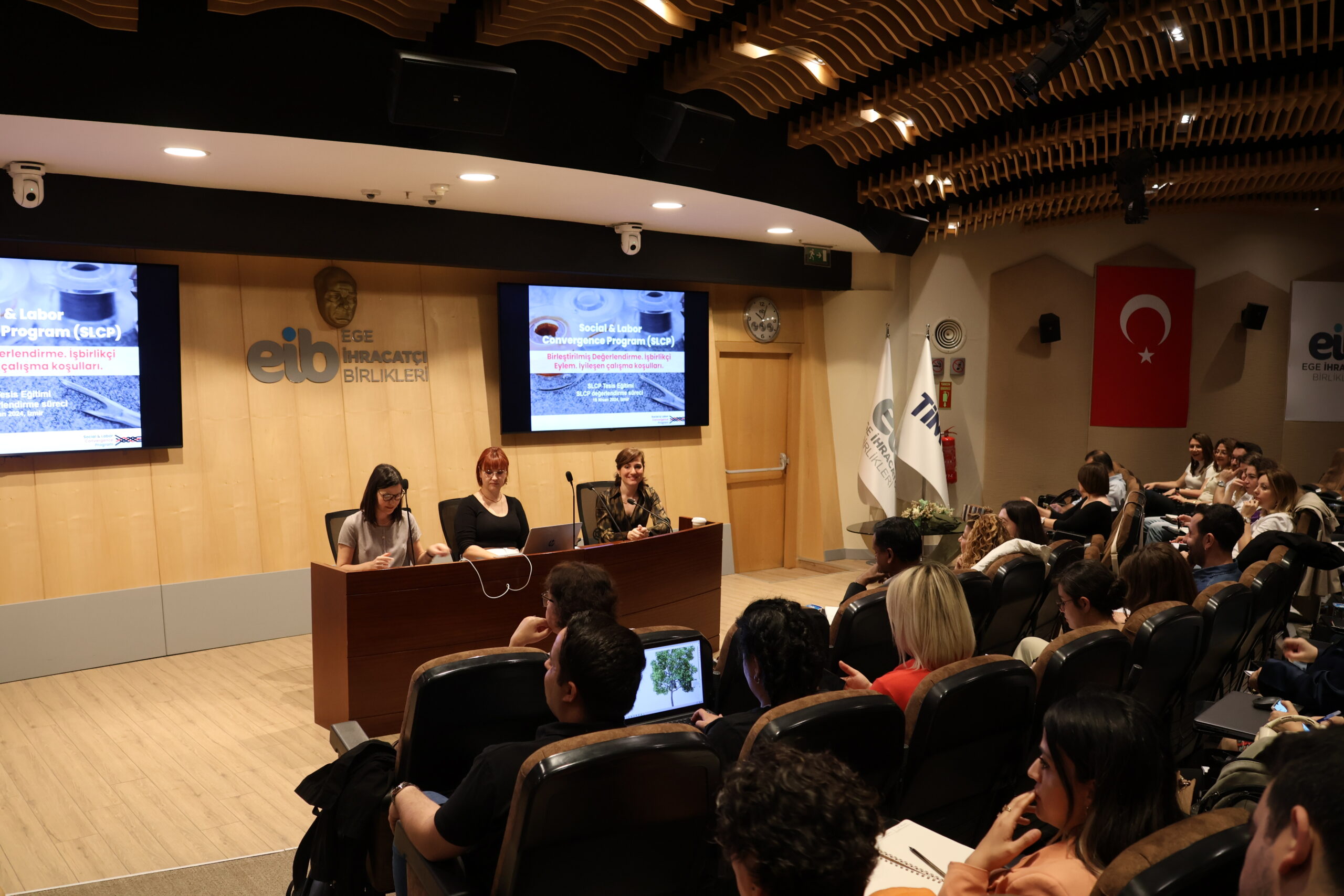Turkish Fashion Industry Leads the Way in Social Compliance. The Ege Ready-to-Wear and Apparel Exporters’ Association continues its efforts in line with the United Nations Sustainable Development Goals.
The Social & Labor Convergence Program (SLCP), aimed at improving social and labor conditions in global supply chains, convened stakeholders from the Turkish textile sector for the second time under the auspices of the Ege Ready-to-Wear and Apparel Exporters’ Association.
Emphasizing their commitment to social compliance and sustainability initiatives, Burak Sertbaş, President of the Ege Ready-to-Wear and Apparel Exporters’ Association, stated, “Through our longstanding efforts, our firms have made significant progress in strengthening sustainability management, carbon management, planning, and production processes, as well as enhancing social compliance capacities. Hosting the fourth edition of the SLCP introduction, which we first hosted in 2019, demonstrates our ongoing collaboration with SLCP. The SLCP Verification has been included in the ‘Market Entry Documents’ of the Ministry of Trade Export Supports. Sustainability and social compliance issues are among the most critical issues in our textile and apparel sectors, with customer demands for social compliance certificates increasing accordingly.”
President Sertbaş added, “However, the challenge begins here; as a result of our customers’ different certification requirements, we need to undergo numerous different audit processes. This situation leads to significant losses in terms of time and finances. Therefore, the joint initiative launched to consolidate increasingly stringent social audits in the textile and apparel sectors on a single platform, reducing costs and ensuring more efficient use of resources, is crucial. We believe that SLCP’s activity in our sector is a valuable contribution.”
About SLCP
The Social & Labor Convergence Program (SLCP) aims to reduce the number of social compliance audits in facilities, thereby improving social and labor conditions in global supply chains. Together with key stakeholders in the garment, home textiles, and footwear industries, a tool and system have been created to collect data that a facility can share with multiple customers. Over 85 brands and retailers, including Inditex, PVH, H&M, Nike, Puma, C&A, GAP, and Target, have adopted the SLCP data collection tool. The list of brands that have adopted SLCP continues to grow, providing an opportunity to reduce audit fatigue, compare data, and use resources in improvement programs.
Expansion of SLCP
Since its launch in 2019, SLCP has rapidly expanded and is currently operational in 62 countries and regions, with over 13,000 registered facilities worldwide. Verified assessments increased by 27% in 2023 compared to the previous year. In Turkey, over 1300 facilities have registered with SLCP to date, with 1026 facilities completing the verification process in 2023 alone. The consistent growth in Turkey demonstrates the effectiveness of SLCP in streamlining audit processes and facilitating engagement with new buyers.
SLCP Human Rights Due Diligence (HRDD) Toolkit
The SLCP Human Rights Due Diligence (HRDD) Toolkit was released in 2023 to help stakeholders understand how their SLCP assessments align with various regulatory requirements, such as the United Framework Assessment Framework (CAF) and the Corporate Sustainability Assessment Directive (CSADD). The toolkit covers the value of SLCP in implementing OECD Garment and Footwear Due Diligence Guidance, the draft European Corporate Sustainability Assessment Directive, the German Supply Chain Due Diligence Act, and the Uyghur Forced Labor Prevention Act (UFLPA).





